Why School-Based ABA Therapy Focuses on Social Skills Development
Unveiling the Role of ABA Therapy in School Settings
Introduction: The Focus on Social Skills in ABA
School-based ABA therapy plays a pivotal role in fostering social skills among children, particularly those with Autism Spectrum Disorder (ASD). Through structured, evidence-based techniques, ABA therapy aims to improve children's ability to interact with peers and adults effectively, paving the way for better academic and developmental outcomes. This article delves into why social skills development is central to ABA therapy within educational environments, exploring its methodologies and the supporting evidence that highlights its benefits for children with ASD.
The Critical Role of Social Skills in School-Based ABA
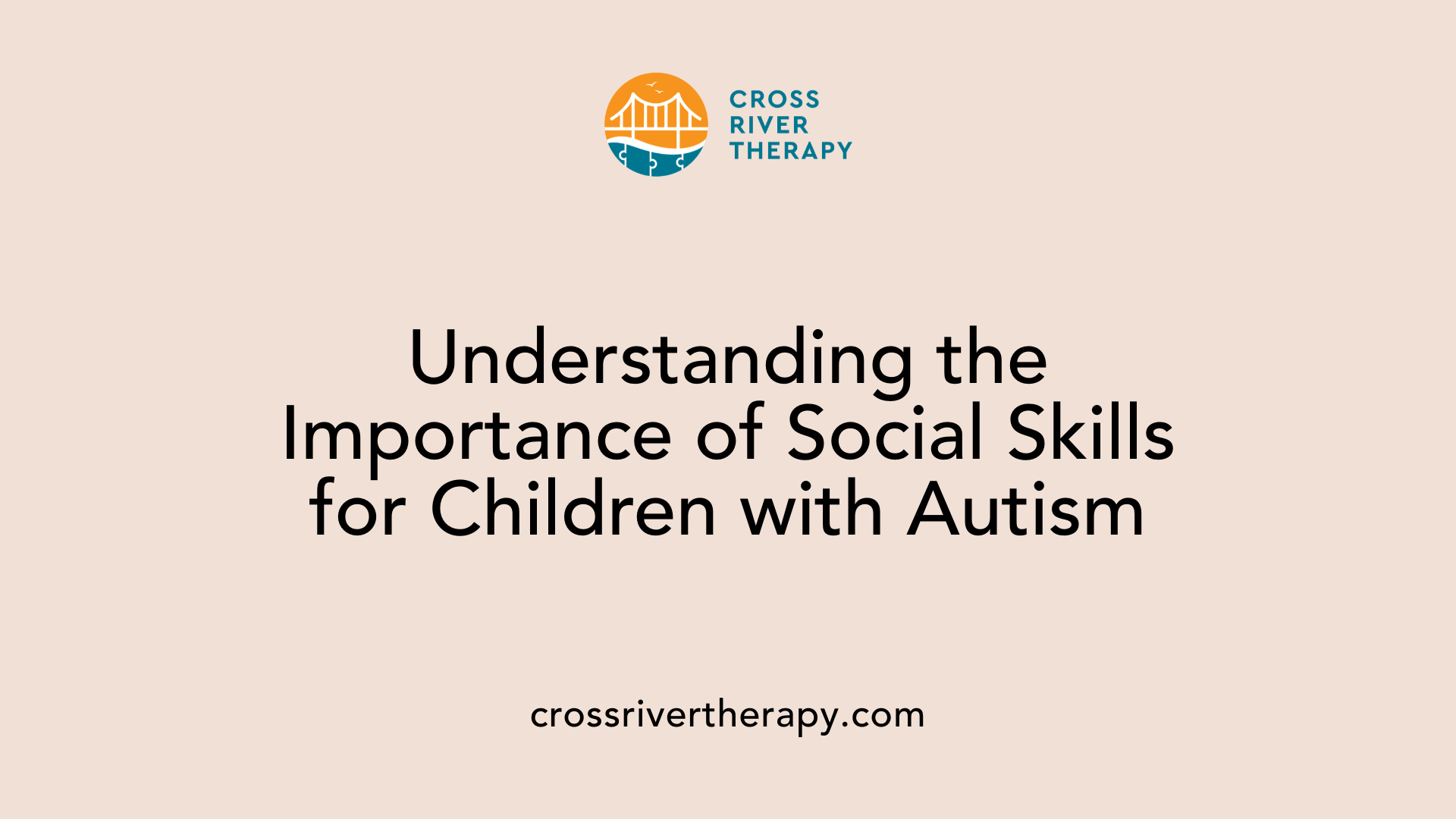
Why is the development of social skills crucial for individuals with autism?
Developing social skills is essential for individuals with autism, as it enables them to engage effectively in social interactions and reduces the likelihood of feeling overwhelmed in new situations. Many individuals on the autism spectrum desire social connection but often face challenges in understanding the social rules and cues that govern relationships.
Structured programs, such as PEERS (Program for the Education and Enrichment of Relational Skills), have demonstrated substantial benefits. These initiatives focus on direct instruction and real-life practice, empowering individuals to enhance their communication and interaction abilities. This approach fosters crucial social learning through methods like role-playing and peer-mediated interventions.
Strong social skills enrich the lives of individuals with autism, leading to increased happiness, better relationships, and an overall improved quality of life. By equipping students with these essential skills, ABA therapy contributes significantly to their social engagement and overall development.
The Importance of Social Skills
Social skills do not only aid in relationship-building; they are vital for navigating daily interactions and academic success. In an ABA therapy context, the emphasis on enhancing communication abilities promotes both verbal and non-verbal exchanges, crucial for children to express their thoughts and connect with others more effectively.
ABA's Focus on Social Interaction
ABA therapy employs various targeted interventions to tackle social skills, ensuring a structured and customized approach for each child. Techniques like Natural Environment Training (NET) and Social Stories make learning applicable, encouraging students to practice these skills in real-world scenarios.
Benefits for Children with Autism
For children with autism, ABA therapy provides an avenue to build crucial life skills, including:
- Improved Communication: Enhanced ability to articulate thoughts and feelings.
- Friendship Building: Guidance in developing peer relationships.
- Conflict Resolution: Strategies to navigate disagreements constructively.
This therapeutic approach is tailored to meet each child's unique needs, thus supporting their journey towards greater social competence and emotional well-being in an inclusive environment.
Understanding ABA Methodologies in Developing Social Skills
ABA Techniques for Social Skills
Applied Behavior Analysis (ABA) therapy incorporates various techniques specifically designed to improve social skills in children, particularly those with Autism Spectrum Disorder (ASD). One primary goal is to enhance children's ability to interact appropriately with peers and adults. This is achieved through targeted social skills goals that focus on essential behaviors such as taking turns, understanding social cues, and initiating conversations.
- Discrete Trial Training (DTT): Simplifies complex skills into manageable tasks through repeated practice.
- Natural Environment Training (NET): Teaches social skills in real-world settings to promote generalization of learned behaviors.
- Role-Playing: Offers opportunities to practice social scenarios in a safe environment.
- Social Stories: Visual aids that help children understand social expectations.
Role of Reinforcement and Modeling
Reinforcement is a cornerstone of ABA therapy, encouraging children to repeat positive social behaviors through rewards. This method fosters a sense of achievement and motivates continuous engagement in social interactions.
Additionally, modeling, where therapists demonstrate desired behaviors for children to imitate, plays a crucial role. By observing these behaviors, kids learn through imitation, enhancing their understanding of appropriate social interactions.
Real-Life Application of Skills
The real-life application of learned social skills is vital for effective social integration. ABA therapy emphasizes practicing these skills in planned and naturally occurring situations, reinforcing their practical use in everyday contexts. This approach not only aids children in navigating social interactions with peers but also focuses on emotional regulation and conflict resolution strategies, fostering stronger, lasting relationships.
Overall, by employing a structured and individualized approach using techniques like Behavioral Skills Training (BST), children are better equipped to build meaningful connections and enhance their social capabilities.
Evidence-Backed Benefits of ABA in School Settings
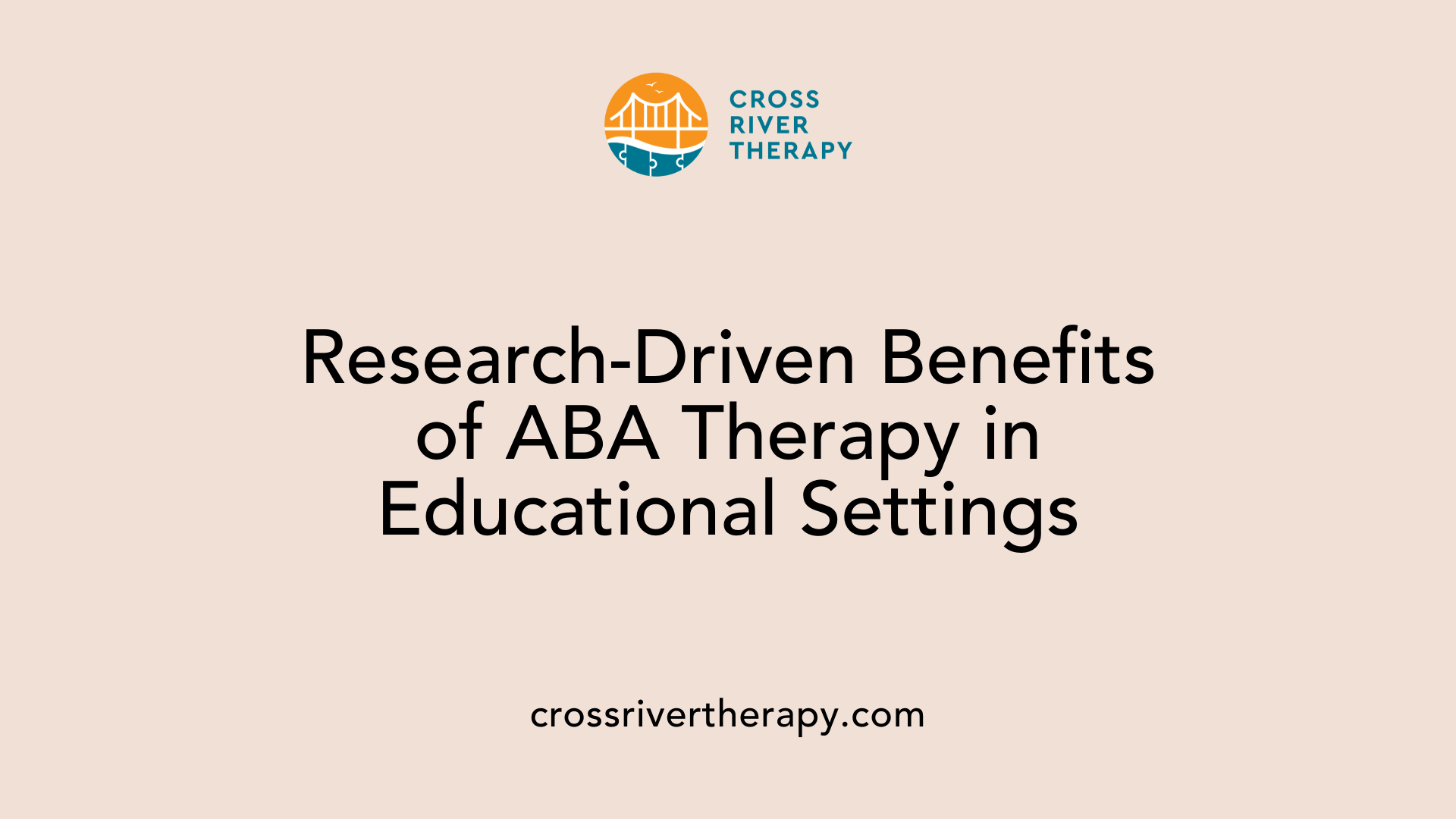
What is the evidence supporting the development of social skills through ABA therapy?
Research has demonstrated that ABA therapy significantly enhances social skills in individuals with autism, particularly by improving communication and social interactions.
It employs structured, evidence-based methods to address specific social communication challenges, such as initiating conversations and interpreting social cues.
Improved Social Interactions
Techniques like modeling, role-playing, and positive reinforcement are pivotal in systematically teaching social skills. They encourage individuals to practice and generalize these skills in various settings. For example:
- Modeling allows children to observe and imitate desired behaviors, enriching their learning experience.
- Role-playing provides hands-on practice in realistic scenarios, enabling children to develop responses to social situations effectively.
Studies have shown that individuals who undergo ABA therapy exhibit:
- Improved reciprocal conversations
- Enhanced emotional understanding
- Healthier peer relationships
Emotional and Academic Growth
Furthermore, ABA therapy not only aids in skill development but also supports overall emotional regulation and preparation for academic success. Children learn to manage their emotions, a crucial aspect of effectively navigating social situations.
Ultimately, ABA therapy emerges as a vital tool in the educational landscape, fostering social skills and overall development in children with autism. The positive reinforcement strategies employed in this therapy ensure that desirable behaviors are encouraged, leading to a more integrated and supportive learning environment.
Highlighting Key ABA Techniques for Social Skill Enhancement
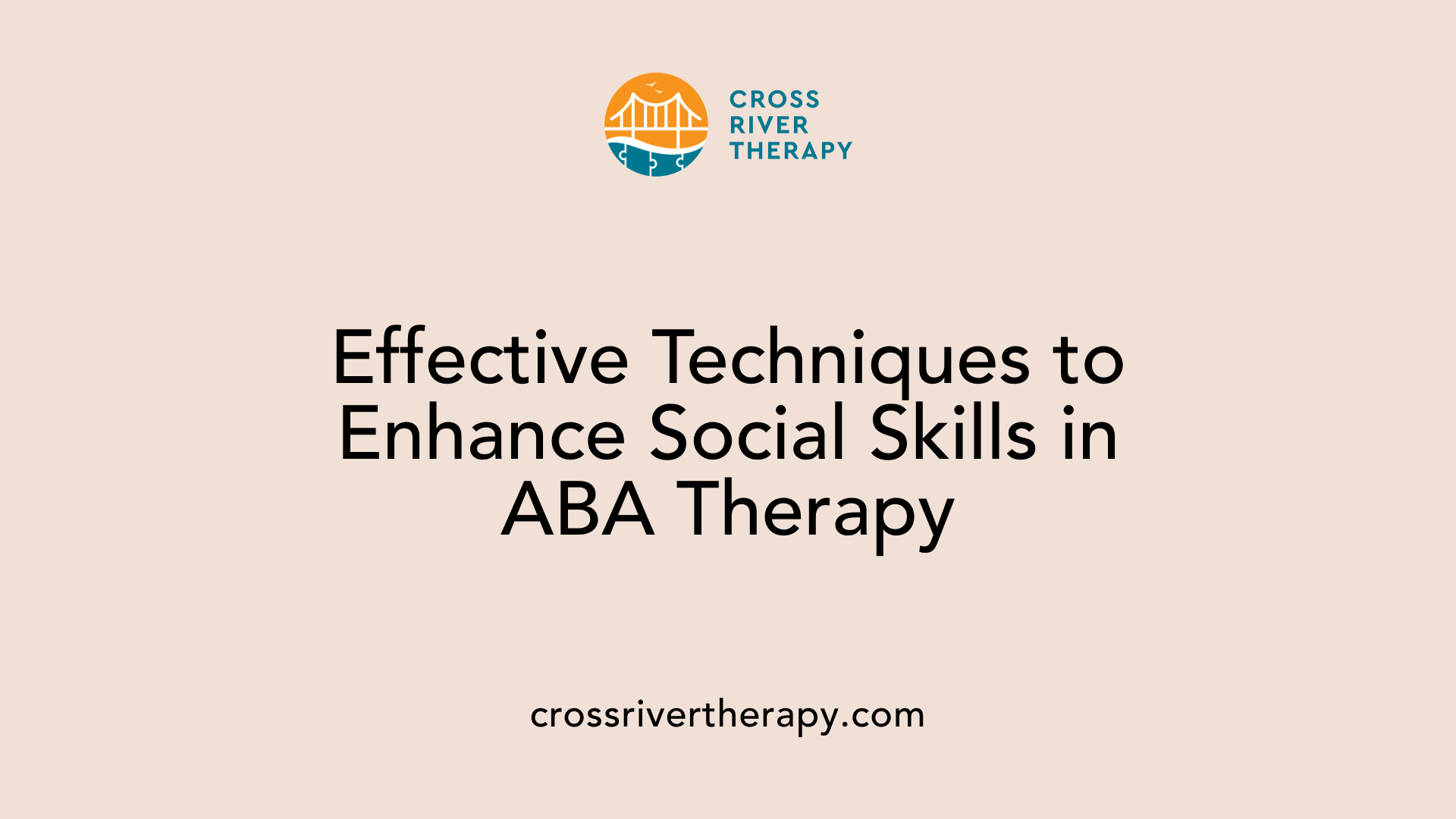
Key strategies used in ABA
Applied Behavior Analysis (ABA) employs various techniques to enhance social skills in children, especially those with Autism Spectrum Disorder (ASD). The most effective methods emphasize individualized intervention, focusing on reinforcing positive behaviors and teaching new skills tailored to each child’s unique requirements.
Focus on Role-Playing, Social Stories, and Natural Teaching
Several prominent techniques include:
- Role-Playing: This strategy allows children to practice social interactions in a safe environment. They can act out scenarios, receive feedback, and learn appropriate responses, enhancing their real-life application of the skills developed.
- Social Stories: These are crafted narratives that outline specific social situations and the expected behaviors. Social stories help children visualize interactions, reducing anxiety and promoting confidence in social settings.
- Natural Environment Teaching (NET): This method involves teaching social skills in real-life contexts. By using children's interests, therapists create authentic learning opportunities that encourage spontaneous use of learned skills, effectively integrating them into everyday interactions.
Incorporating these strategies fosters a supportive atmosphere for social skills development, enabling children to build meaningful relationships and navigate social nuances successfully.
Fostering a Supportive Classroom Environment with ABA
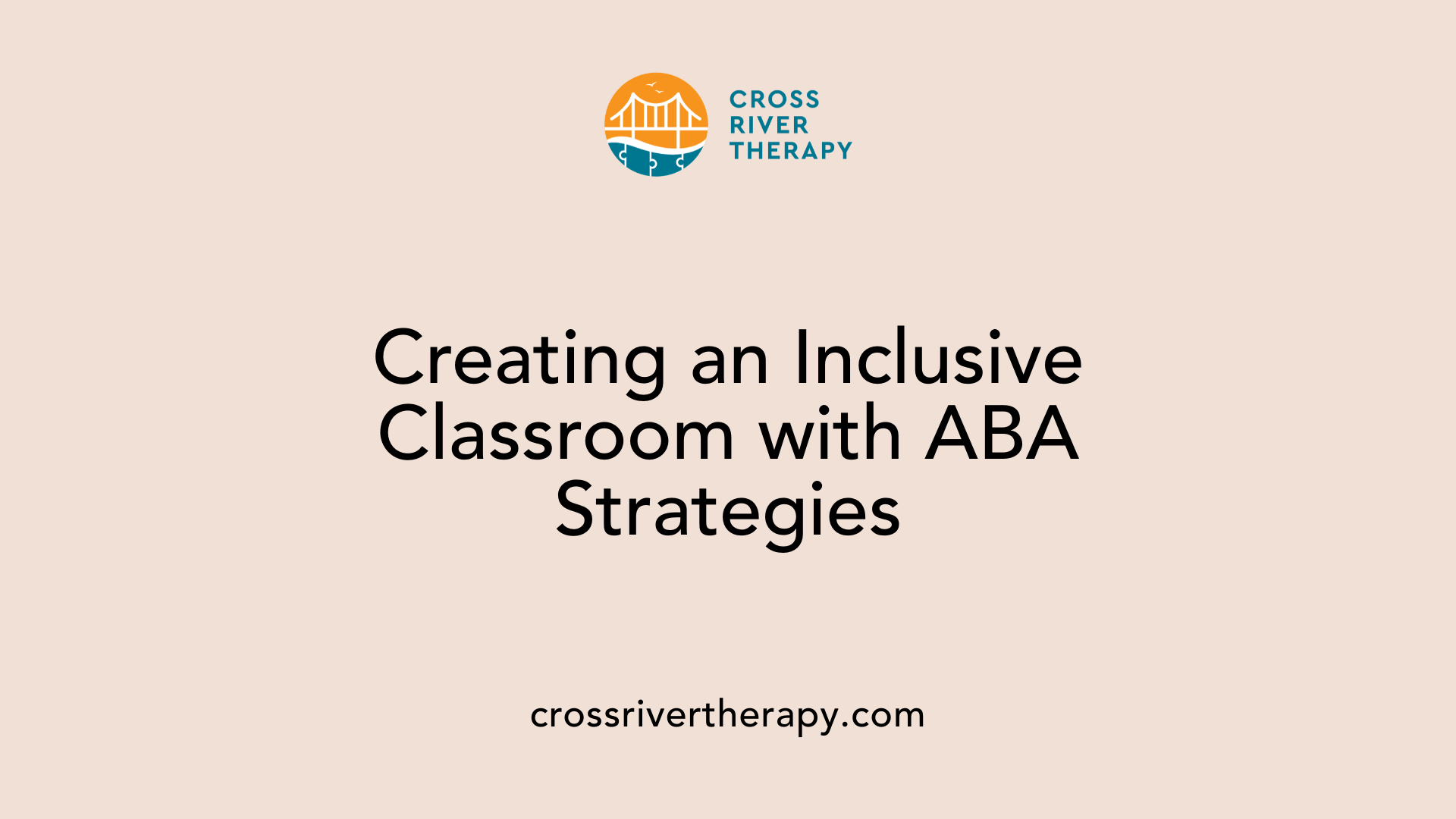
Integration of ABA in classrooms
School-based Applied Behavior Analysis (ABA) therapy strategically incorporates various techniques to enhance learning while fostering a supportive environment. By implementing structured interventions, educators can effectively address the unique needs of students, particularly those with Autism Spectrum Disorder (ASD). This approach emphasizes collaboration between parents, teachers, and therapists, ensuring a shared commitment to each child's development.
Promoting positive social behaviors
Utilizing targeted interventions like positive reinforcement, role-playing, and social stories, ABA therapy helps students develop critical social skills. These methods cultivate effective communication, cooperation, and conflict resolution abilities, enabling children to thrive in social settings. It's crucial for children to practice these skills in a supportive setting, as it builds their confidence and prepares them for real-life interactions.
Skill generalization to real-world settings
A notable aspect of school-based ABA therapy is its focus on skill generalization. Techniques such as Natural Environment Training (NET) allow children to practice learned skills in actual social situations, reinforcing their ability to transfer these skills beyond the classroom. Video modeling, peer modeling, and planned social encounters ensure that children not only learn appropriate behaviors but are also able to apply them seamlessly in various contexts, fostering lasting social competence.
Collaboration and Individualization in ABA
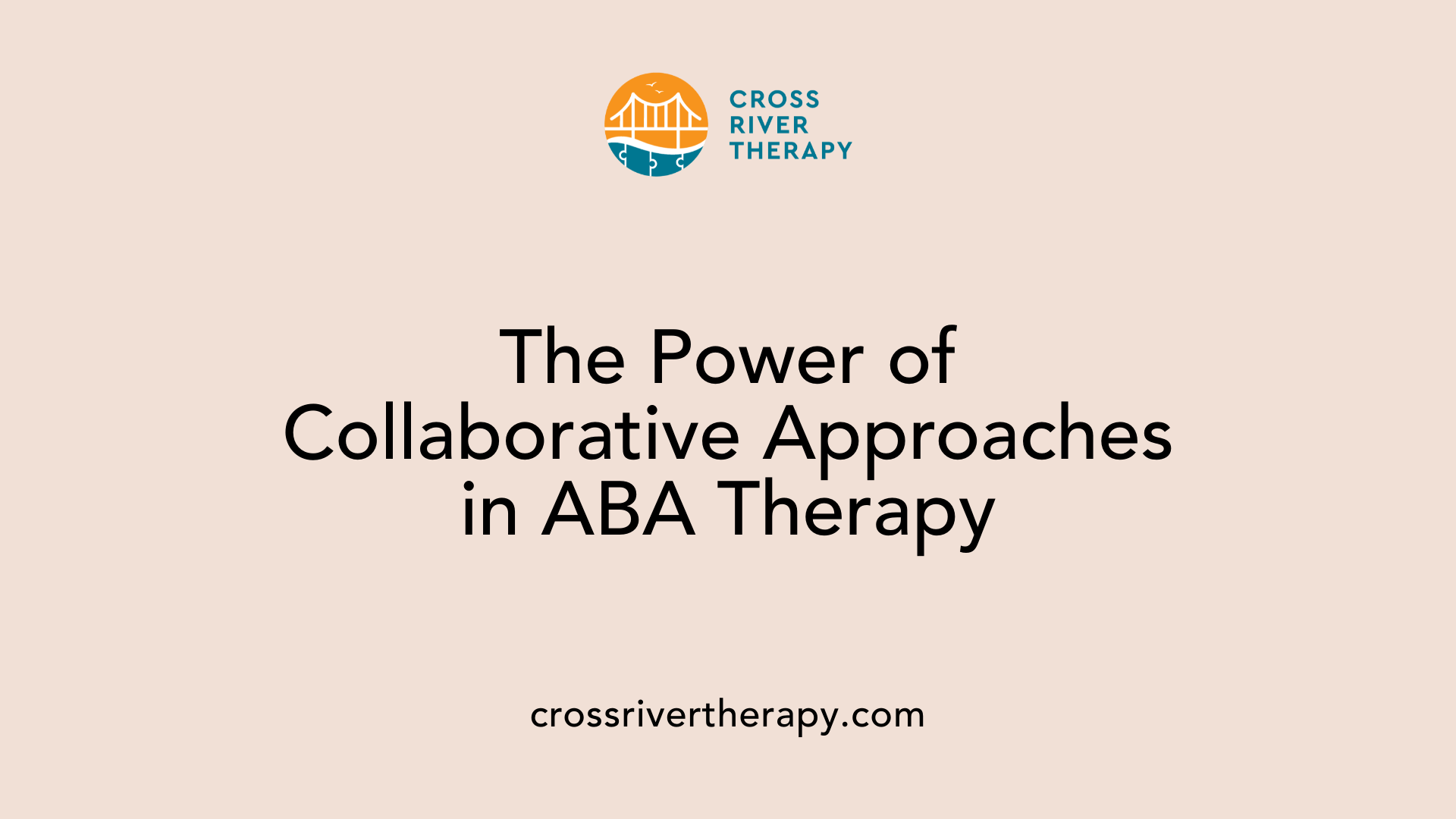
Importance of Collaboration with Parents and Educators
Collaboration among parents, therapists, and educators plays a crucial role in the success of Applied Behavior Analysis (ABA) therapy. This teamwork ensures that everyone involved in the child's life is on the same page, working towards common goals. When parents and educators share insights on a child's progress, challenges, and strategies, it leads to a more cohesive approach to learning and social interactions. Consistent communication helps to reinforce behaviors and skills in multiple settings, enhancing the child's overall development.
Tailored Intervention Plans for Each Child
Every child possesses unique strengths and challenges, making individualized intervention plans essential in ABA therapy. These plans start with comprehensive assessments, identifying specific social skills deficits and setting achievable goals based on each child’s needs. Techniques—including Discrete Trial Training and Natural Environment Training—are adapted to create engaging learning experiences. As children advance, their goals are reviewed and adjusted, ensuring continued growth and effective skill acquisition. This personalized approach not only fosters skill mastery but also supports children's emotional well-being, ultimately leading to successful interactions in social contexts.
Long-Term Outcomes of Effective ABA Application
Impact on Independence and Problem Behaviors
The application of ABA therapy significantly influences the independence of children, particularly those with Autism Spectrum Disorder (ASD). By focusing on improving social skills and reducing problem behaviors, children learn how to navigate various social scenarios with confidence. Over time, they often showcase marked improvements in their ability to engage independently in social interactions, make decisions, and manage tasks that involve peer engagement.
Additionally, positive reinforcement strategies reduce problematic behaviors, which can hinder social connections. By systematically reinforcing desired behaviors, children become better equipped to handle social situations, decreasing instances of maladaptive behaviors that often arise from frustration or miscommunication.
Connections to Academic Success and Peer Relationships
The social skills fostered through ABA therapy directly correlate with enhanced academic performance and stronger peer relationships. As children become more adept in social interactions, their ability to collaborate with classmates improves, facilitating a more enriching learning environment. Skills such as communication, cooperation, and conflict resolution contribute not only to academic success but also to the formation of friendships that are crucial for emotional support.
Furthermore, children who engage effectively with their peers demonstrate better emotional regulation, allowing them to handle academic pressures more gracefully. This holistic impact of ABA therapy creates a foundation for lifelong skills that promote both academic achievement and harmonious social living.
Exploring Social Skills Training (SST) as a Complementary Approach
What type of therapy teaches social skills?
Social Skills Training (SST) is a specialized therapeutic approach focused on teaching social skills to individuals, especially those with mental health issues like social anxiety disorder (SAD). SST can be conducted in both individual settings and group formats. Its primary aim is to enhance effective social interactions, even for those who may possess certain social skills but encounter challenges in applying them due to anxiety.
Techniques used in SST
SST employs several effective techniques, including:
- Behavioral Rehearsal: Practicing social scenarios in a controlled setting to build confidence.
- Corrective Feedback: Providing input on social interactions to improve skills incrementally.
- Positive Reinforcement: Encouraging desired behaviors through rewards.
These techniques help participants focus on foundational skills like assertiveness, non-verbal communication, and active listening, which are critical for successful interactions.
Comparison with ABA methods
While SST and ABA therapy both aim to enhance social skills, they differ in their approaches. ABA therapy emphasizes individualized strategies based on comprehensive assessments, focusing on reinforcing positive behaviors, teaching new skills, and reducing problematic actions. SST, on the other hand, often incorporates group dynamics and focuses on overcoming social anxiety through engagement and feedback.
In summary, both SST and ABA therapy can significantly benefit individuals with social difficulties and can be complementary in enhancing social competencies.
Conclusion: Enhancing Social Skills through School-Based ABA
School-based ABA therapy stands as a crucial approach in equipping children with the vital social skills needed to thrive both socially and academically. By employing evidence-based methodologies and fostering supportive learning environments, ABA not only addresses immediate social skill deficits but also lays the groundwork for long-term developmental successes. As research continues to validate the efficacy of ABA in social skills enhancement, its integration within educational settings remains a cornerstone of support for children with autism, empowering them for future life challenges.
References
- School-Based ABA Therapy: Boosting Learning and Behavior
- ABA Therapy for Social Skills Development
- Applied Behavior Analysis (ABA) | Autism Speaks
- Exploring the Role of ABA Therapy in Enhancing Social Skills for ...
- How ABA Therapy Helps Improve Social Skills in Children
- School-Based ABA Therapy - Surpass Behavioral Health
- How ABA Therapy Improves Social Skills for Children with Autism



